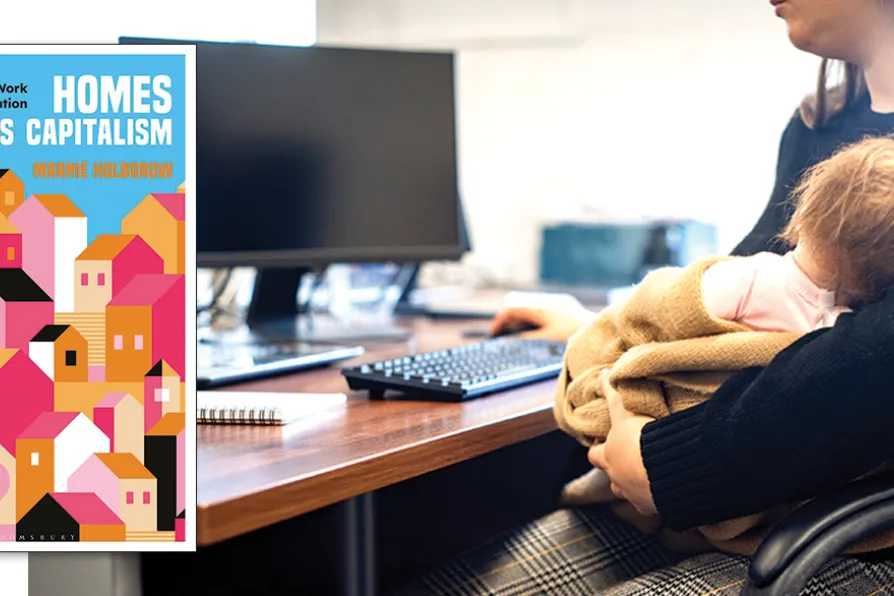JOHN GREEN, MARIA DUARTE and ANGUS REID review Fukushima: A Nuclear Nightmare, Man on the Run, If I Had Legs I’d Kick You, and Cold Storage
Austerity has led to an incessant erosion of social values
FIONA O'CONNOR endorses an examination of how current neoliberal policies sweep social care and welfare burdens into hidden abodes and increase exploitative pressures, particularly on working-class women

 DOUBLE BIND: A woman working from home during the pandemic
[ciphr.com/Creative Commons]
DOUBLE BIND: A woman working from home during the pandemic
[ciphr.com/Creative Commons]
Homes in Crisis Capitalism: Gender, Work and Revolution
By Marnie Holborow
Bloomsbury Academic £80
DOES home exist any more? “Home,” the concept of a private space which closes the door securely on work’s obligations – “the silent compulsion of economic relations,” as Marx termed it?
In this richly researched book, Marnie Holborow locates the fault line for women’s impoverishment lying in the heart of what home has become.
As Holborow puts it, “Home has traditionally been counterposed to work, despite the extensive amount of work – both paid and unpaid – that takes place within it.”
Similar stories

What’s behind the stubborn gender gap in Stem disciplines ask ROX MIDDLETON, LIAM SHAW and MIRIAM GAUNTLETT in their column Science and Society

RICHARD CLARKE recommends a hugely valuable text for those seeking theoretical analysis and practical action to defend public services

Despite progress made on the shoulders of radical women from the past, the gendered impact of austerity and the cost-of-living crisis requires bold action from Labour to address inequality, says REBECCA LONG-BAILEY MP

JON BALDWIN introduces a new translation of Karl Marx’s masterwork that is readable, relatable and refreshed









